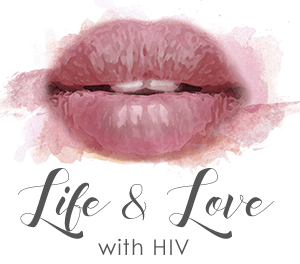
The HIV-Positive Person’s Guide to Sex and Dating
June 19, 2018
My Happy Place Vol. 1: How I Found Love Online
July 15, 2018
The HIV-Positive Person’s Guide to Sex and Dating
June 19, 2018
My Happy Place Vol. 1: How I Found Love Online
July 15, 2018By Dr. Allie Carter
Finding out you have an STI can be an extremely traumatic experience. For many people, the first thought they have is, “my sex life is over.” But here’s what I need you to know right now: Your first thought is what you’ve been conditioned to think.
The second thing you need to know is you’re not alone. Every year, 357 million people learn they have a curable STI: chlamydia, gonorrhoea, syphilis, or trichomoniasis. Millions more currently live with an incurable one, the most common being hepatitis B (240 million), herpes (500 million), HPV (290 million), and HIV (36 million).
STIs are unlike any other illness. They are stigmatized, moralized, and, in some cases, criminalized, making them not just a medical disease but also a social one. This can have huge consequences for navigating pleasure, whether it’s experiencing deep sexual and erotic intimacy or living with a life filled with confidence and joy.
If you (or your partner) have an STI and want to find your groove again, here are six tips to help you maximize your sexual wellbeing, autonomy, and pleasure.
Resisting the Dominant Narrative
Understanding—and challenging—the moral, medical, and media messages about STIs is an important first step to restoring your sexuality.
You are not dirty. You are not deviant. You are not damaged. Etc. Etc. Etc. These are narratives society tells us because, well, sometimes society sucks! The key is unlearning what you’ve been taught.
You are normal. You are loveable. You have a lot to offer. Repeat these affirmations to yourself. Put it on a post-in. Write it down in your journal. Do whatever you need to do to remind yourself it is not you, nor your body, nor your sexuality that is dysfunctional—it is the world around you.
Cultivate Self-Love
For many, shifting your perspective is the key to self-love. And of course, self-love is very often the key to opening up the possibility of a relationship and a vibrant sex life (and know this: you can have one without the other).
So, be kind to yourself. Take the time you need to heal. The trauma is real. And when you’re ready, give yourself permission to experience pleasure again. You deserve it. Let me say that once more. YOU DESERVE IT.
To help with this, look for counter-stories of hope and happiness. They’re out there. I’m talking about stories from people who have (or had) an STI and who found pleasure, enjoyment, and fulfillment again— they will help your re-imagine your sexuality in ways you never thought possible.
Talk To An Expert
—I Mean, A Real Expert Talk to a doctor. They’ll offer the treatment you need to stay healthy and tell you about the latest prevention tools (see below for some more on that).
But after you talk to a doctor, seek out a real expert. Someone who knows exactly what you’re going through—someone living with the disease. Many of the women living with HIV I work with say peers or peer support groups are an important source of information and support.
In fact, it’s where they get the advice they really want. Not the practical medical stuff (though that’s important), but the emotional and intellectual things. Everything from how to safely disclose your STI status, to positively and confidently navigating safer sex, to those private, intimate conversations you’ll have with yourself about how you feel about your sexuality.
Treat Your Partner The Way You Would Want To Be Treated
This goes both ways.
Let me start with the person who has an STI. Studies have found that many people view themselves as contaminated or untouchable. What they need from their partners, then, is assurance that you still see them as a sexual person. Kiss them. Hold them. Touch them. Caress them. (With consent, of course.) The point is: Don’t underestimate the power of intimacy, beyond the common (but in no way only) assembly of sexual activities.
People who experience an STI diagnosis need to know the way you feel about them—be it, that initial spark or attraction that pulled you two together or that deep, romantic, enduring kind of love—has not changed.
As for partners in a sexual relationship with a person who has an STI, well, they also have needs. They too may experience feelings of fear, uncertainty, or “otherness.” If they are good people, this is likely not coming from a place of prejudice but simply a lack of knowledge.
They will need education and information about sexuality after learning of your STI status. (P.S. They too have an STI status and should know it. If it turns out they’re STI-negative and your relationship continues -which I hope it does – regular testing is important.)
You (the person with an STI) will likely have to educate them. Other strategies include inviting them to chat with your doctor or sending them to a reliable website (key word: reliable, as many websites tend to misrepresent the realities of living with an STI).
Know that, like you, it may take them time to process their feelings. And if they’re truly unable to, move on. They’re probably not worthy of your time, let alone your mind, body, and soul.
Keep Up With The Latest Science
The meaning of “safer sex” has evolved considerably over the years. Historically, and still today, condoms remain the best option for prevention of a wide range of STIs, including those transmitted by genital fluids (like HIV, chlamydia, gonorrhea, and trichomoniasis) and skin-to-skin contact if the infected area is protected (for example, genital herpes and syphilis).
Having said that, condoms are not, in my opinion, the panacea or cure-all. Regular testing, and care and treatment, is vital (many STIs are transmitted due to unknown status). Vaccines can protect against hepatitis B and some types of HPV. Research on microbicides—a discreet, long-acting, female-initiated method of prevention of HIV—is evolving, with hope that new drugs can be approved for use in the near future.
For now, PrEP (or pre-exposure prophylaxis) is an exciting new prevention tool for safer pleasure: it is a single pill called Truvada taken once daily to prevent HIV in people with higher levels of risk. For those who are HIV-positive, we have antiretroviral therapy: it not only improves health but also effectively eliminates the risk of HIV transmission.
Many of these strategies can be used in combination with each other to offset risk, along with a whole host of others, including, for example: serosorting (where both partners have the same STI status), viral load sorting (in the context of HIV), abstention of some types of sexual activities, strategic positioning (for gay men), and asking STI status before sex (FYI: this latter strategy goes both ways, whether you’re positive or negative!)
You’ll also want to consider where you are in your life and in your relationship (think: monogamy, reproductive age, gender, and sexual orientation, for example). Ultimately, it’s up to you and your partner to make informed choices about negotiated safety.
You may also be wondering: What about the science of pleasure? What lowers inhibitions? What cultivates desire? Unfortunately, we don’t know enough about sex and pleasure among people living with STIs. But here’s what I can tell you: In my research with more than a thousand HIV-positive women, many of whom are in relationships with HIV-negative partners, three things are consistently associated with a wide range of positive sexual experiences: emotional closeness, physical intimacy, and equal power. Affection and gender equality, it seems, are key to empowerment in the bedroom.
And finally, Find Your Own Pleasure!
I hope by now it’s clear the idea that sex and pleasure is not possible while living with an STI is a myth. While your sexual practices may vary, your rights to sexual wellbeing and enjoyment—free from discrimination, coercion, and harm—have not.
If sex is what you want (either with yourself or another person), cool! If not, that’s cool too! Get to know your own wants, needs, desires, concerns, and (in)securities regarding sex and sexuality (we all have them). And learn to talk about these things, openly and without judgement, with your partners.
This builds agency (or your ability to act according to your own wishes), and, in turn, your unadulterated freedom to pursue pleasure.
This article was originally published on Find Your Pleasure on July 14, 2018, here.






